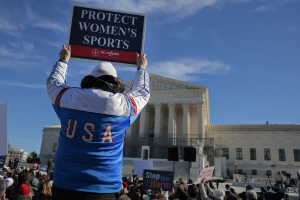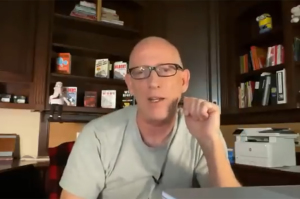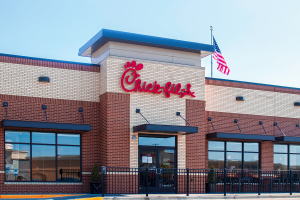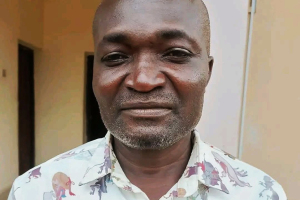Christian singer Jason Biddle releases new single after surviving overdose, overcoming drug addiction
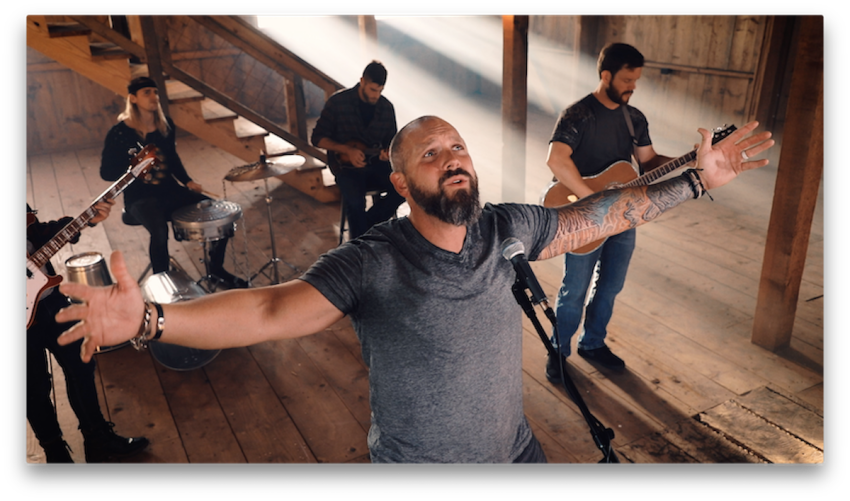
Christian singer Jason Biddle, who premiered his first official single, “Come On In,” said only God could help him out of his physical and mental addiction to drugs and alcohol.
Biddle’s life journey is one of battling addiction and, after nearly dying of an overdose, finding redemption and healing. He testifies about his life-changing journey through his music.
The former star baseball player, who tried out for the Cincinnati Reds, began a career as a contractor after an injury. He became addicted to alcohol and drugs and knew he couldn't overcome it without God's help — even if that meant suffering consequences.
"When I prayed, I asked for consequences. I knew it was the only thing that would get me to stop," Biddle told The Christian Post.
God answered. Biddle nearly died of an overdose in 2017 while he was with his children.
He received therapy at a Christian treatment center and while there, he realized that the addiction was just a "symptom" of a larger problem in his life.
When he finally surrendered to Christ, that’s when healing began both within himself and in his family. Biddle, who grew up in the Christian faith, is now making music and has since collaborated with some of Nashville’s most sought-after writers.
The following is an edited transcript of CP's interview with Biddle, who talked about the sin of idols, how his relationship with Jesus Christ saved him and his family from addiction, and how his music is impacting others through his testimony.
Christian Post: How did growing up as a Christian play a role in your life even when things were spiraling out of control?
Biddle: Growing up in a Christian family and going to church at such a young age definitely planted seeds of hope and faith that would later come to fruition. But as I grew older and became more independent, God became irrelevant to me. I thought I controlled my own destiny. My pride told me that I was "self-made" and a maker of my own outcomes, no matter what. It wasn’t until age 26, in a moment of desperation, that I asked God for help. His immediate help started the progressive transition into my further understanding and belief that God is real.
I asked Christ into my life at 31 and grew spiritually for the next eight years, until my shoulder surgery sent me back into the addiction I thought I had conquered. That period of growth in Christ was the reason I knew that He was the only One that could help me out of this physical and mental addiction to drugs and alcohol. It was in another moment of desperation that I remembered God helping me before, and I knew He would help me again. When I prayed, I asked for consequences. I knew it was the only thing that would get me to stop. Within two weeks I overdosed and had a seizure.
CP: You say that early success led to alcohol and drug abuse; what led to that?
Biddle: I now know that the alcohol and drugs were just symptoms of a larger, underlying problem. I made pride, control, money and impressing others the most important things in my life. They became idols that I was unknowingly worshiping. God created us to worship. He also gave us free will. So if we are not worshiping God, we will worship something else. That something else will always let us down. For me, when someone was better at something than I was, my pride and ego were threatened. If a major job fell through that I was counting on, my control was threatened. When those idols let me down, a drink or a drug would fill that void until a chemical dependency was inevitable.
CP: What could someone do to avoid falling into addiction?
Biddle: I think there is a serious moral inventory that people need to take for themselves. Some need to do that with another individual for accountability. We need to look at what it is that we hold closest to our hearts. What do we cherish the most in life? There’s an addiction for all of us just waiting to show its ugly face at any time. Addiction doesn’t have to be drugs and alcohol. It can be porn, gambling, electronics, work, shopping, possessions, etc. Even your own children can be an addiction. Again, I think those addictions are all symptoms of an idol that is not fulfilling or satisfying us. God has to be first and foremost.
CP: You nearly died from an overdose and that changed everything for you. Can you explain what took place following that?
Biddle: After a miraculous recovery in the hospital, 16 days later I was released but I wasn’t allowed to go home. Social Services was involved because the incident happened while I was caring for my children. They required that I enroll in a treatment program for a minimum of 30 days before I could be in the same household as my family. It was then I realized the true weight of my sin. The guilt and the shame were heavier than ever.
We found a place called Redemption House (a privately-owned Christ-based addiction recovery residence) with a 90-day minimum. When I walked through the door, a peace came over me that I had never felt before. A sense of full surrender came over me and I knew I was supposed to be there. Within three weeks, I had read a few books and had multiple meetings with my counselor. My idols, addictions and sins became apparent. Although difficult, I was able to take ownership of my transgressions and character defects.
Communication with my wife was only via phone and a couple of Sunday visitations. She was still hurt and bitter. I remember one night on the phone she said she didn’t know if we could get back to a "normal life" again; she had a lot of doubt about our marriage. I remember breaking down and crying out to God. By the end of my prayer I completely surrendered again, thanking God for His answered prayer, granting me consequences that allowed me to be at Redemption House. I was willing to accept anything, no matter what. No matter what happened with me or my family, I would put my life in His hands and not try and control the outcome. But I also had confidence that God would use everything that has happened — or would happen — for good. And God came through. He healed my wife's hardened heart, restored our marriage, and He has allowed me to become a better man, husband and father each day with Him at the center of everything.
CP: Your new single "Come On In" was written for a friend. How have you witnessed your testimony impacting others?
Biddle: From sharing my testimony in front of gang leaders in Haiti, to speaking at local churches or recovery Zoom meetings, I can only say I am honored to be used by God. My wife, Britney, and I have received lots of calls from people in our church and community who know our story and are experiencing similar family issues. My story doesn't focus on drugs and alcohol as much as it does on sin and idols — those things affect everyone. Once others see that, they realize they have more in common with addicts than they thought. Drugs and alcohol may be my symptoms, but for others it’s anger, fear and resentment, among other things. We all have symptoms and potentially devastating repercussions from our sin.
CP: How can your music be used as a tool to help people overcome addiction?
Biddle: My songs are pieces of my testimony that I think people will connect with on various levels. My hope is that the Gospel will be echoed in the lyrics of each song. It’s not so much about the music as it is the story behind the music. If my music can be the platform to share the story God has given me, then God wins. I feel so blessed to see Him using me and my testimony more and more each day.
CP: You explain that your wife nearly left you and it helped save you. What advice do you have for families who are trying to help their loved ones break free from addiction?
Biddle: I see family members all the time dealing with loved ones who are lost in their sin and addictions. These family members want their loved ones to change so badly and they will do anything to try and help. Sometimes families can become addicted to the addict. They will lie for them, enable them, fight for them, and turn their backs on other family members to protect the addict. Without even knowing it, they have made their loved one their own idol.
There comes a time when a family must surrender to God and realize they can’t do anything to change their loved one in active addiction. It has to be left to God. I would suggest families find support groups through church or seek biblical counseling. I know that Thrive Ministries has a great support group here in Minnesota and through the pandemic they have grown across the nation with Zoom meetings.
CP: Can you talk about the benefit of Christian in-patient therapy to help someone get sober?
Biddle: After experiencing both secular and Christ-based recovery programs, the differences are substantial. One may save your life, but the other will save your soul. I think secular programs can be beneficial. With 12 step programs, I learned a lot about physical addiction. I learned what the chemicals actually do to your brain and how your receptors react to different drugs and alcohol and the damage that can be caused from extended use.
But a Christ-based program, on the other hand, is where I learned there was a much greater issue lying deep within — a heart issue. My addiction was the result of sin. We have been this way since the fall of Adam and Eve. Jeremiah 17:9 says, “The heart is deceitful above all things and beyond cure. Who can understand it?” I learned about the idols I hold closest to my heart. I learned about my purpose in life and that I am forgiven as a result of Christ's death for me on the cross. I am a child of God and He loves me and knows everything about me. I know that I can have a daily relationship with Him through Christ, and I will be with God in Heaven for eternity.















